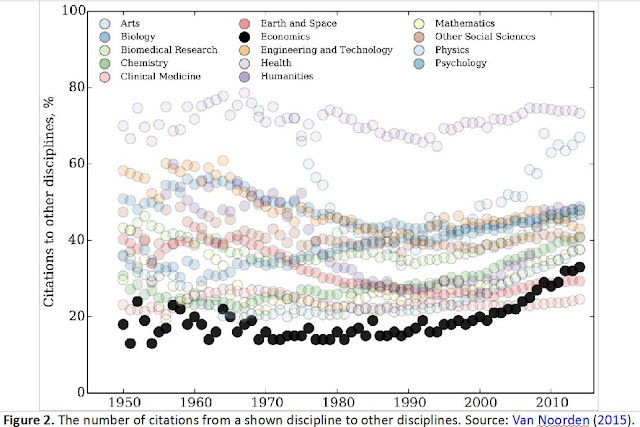This covers
ground which others may be more knowledgeable about, so please let me
know of any references or sources that I really should read that
cover issues central to the discussion below.
When Trump threatens
governments that want to tax tech giants, most of which are based in
the US, it seems like the familiar story of governments acting in the
interest of business. But when Trump imposes tariffs on imports he
may be favouring particular firms, but he is also acting against the
interests of US trading firms in general.
Brexit is a much
more potent example. Brexit is clearly not in the interests of firms
that trade. Because Brexit makes the economy as a whole poorer there
are not many firms who support it. Boris Johnson, when asked about
concerns from business about a hard Brexit, is reported
as saying “f*** business”, and following some comments by the new
Chancellor, Chris Grey speculates
whether “f*** business” is now government policy.
It wasn’t always
like this. David Edgerton writes
that
“After the second world war, such captains of industry avoided the Commons, but the Conservative party was without question the party of capital and property, one which stood against the party of organised labour.”
That changed after
Thatcher, as she reduced the power of trade unions, and Labour began
distancing itself from them. Another development that I think began
with Thatcher, and is particularly evident in the UK, is a lack of
concern about who owns large firms. The importance of this should not
be overstated: the ONS estimated
that in 2012 just 1% of non-financial firms were foreign-owned, but
these firms were large so around a third of value-added was accounted
for by foreign owner firms. I suspect the proportion is higher still
in the traded sector. But that still leaves plenty of important UK
owned firms.
Another important
point, and a difference from the US, is that joining the EU meant the
UK was no longer in charge of trade negotiations. This ended the extensive and direct contacts between the UK traded
goods sector and government that you find in countries not part of the EU. However links between the financial
sector and the UK government are strong and effective. In contrast as
the financial sector expanded, its links with domestic businesses
became less important.
Finally another
important development that followed from the Thatcher period was the
reduction in taxation of top incomes. This particularly benefited
high earners in the financial sector, but it also spread to most CEOs
of large companies. According to Piketty,
Saez and Stantcheva,
this encouraged in the UK and US an explosion in executive pay, distancing the 0.01% or 0.001% of extremely rich individuals from everyone else. This
involves the managers of business extracting rent from the business
itself. Although this explosion happened in the 1980/90s, the cash increase in remuneration (including bonuses etc) for the median FTSE 100 CEO between 2009 and 2017 increased by 76% to £3.9 million. There are no signs of it ending.
This
meant that CEOs spoke in the interests of both the companies they
ran, but also in the interests of very rich individuals like
themselves.
Before the 2015 UK general election, one of the main concerns
of business about a possible Labour government was a potential tax on
expensive homes! This helps dilute the pressure business can exert on
right wing governments, if those governments make it clear that they
will always stand up for the
very rich.
In 2017 Labour’s campaign slogan was ‘for the many not the few’,
so of course the few will always support the Tory party, even when it
was making life much more difficult for business. Tax cuts for the
wealthy are now a key part of any Republican programme.
In
these senses neoliberalism (aka what happened during
and after
Thatcher and Reagan) created the conditions that helped diminish the
direct influence of business on the dominant right wing party in the
UK and US, and therefore for much of the time the UK and US state.
This was my thinking when I wrote
“Rent extractors naturally seek political defences to preserve their wealth, and the mechanisms that sets in place may not embody any sense of morality, leading to the grotesque spectacle of Republican lawmakers depriving huge numbers of health insurance to be able to cut taxes for those at the top.”
It
also means that the finance any party of the right needs can come
from money and those that manage business (and extract rent from it),
and that can be divorced from the interests of business. This was
part of my thinking in talking
of a governing plutocracy, and writing:
“It is also a mistake to see this plutocracy as designed to support capital. This should again be obvious from Brexit and Trump. It is in capital’s interest to have borders open to goods and people rather than creating barriers and erecting walls.”
Could
a more vocal attack on Brexit by businesses have influenced the vote?
It is not clear, because everything is mediated through a largely
partisan press and an 'opinions differ' broadcast media. However I
think the distinction between the interests of the wealthy and
domestic business is important, and goes well beyond an opposition
between financial and non-financial firms.






